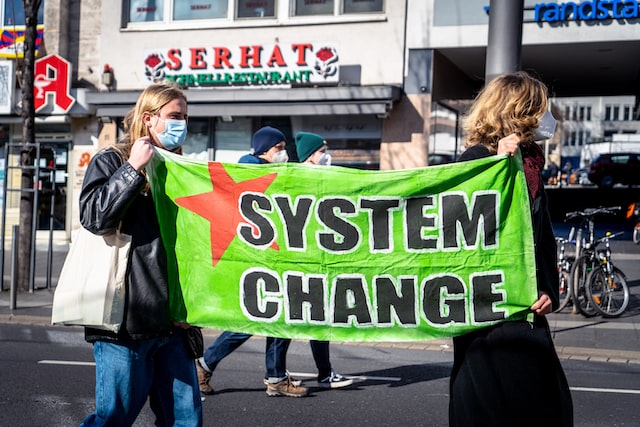
Comment Writer Maxim Nägele explains why Fridays for Future and Just Stop Oil protests have failed and what is needed for climate protests to succeed
With the meteoric rise of Fridays For Future protests across the world sparked by Greta Thunberg’s school strikes in 2018, many were hopeful that climate awareness and actual ecological protection would reach not just the population but also national governments and corporations. These strikes initially caused controversies and media attention as many children disobeyed their parents/schools by skipping school to protest. But the media attention and the radicality of the protesters decreased from time to time with key figures of the movement becoming mere “regulars” on discussion panels and podcasts.
While Fridays for Future did increase overall awareness about responsibility and sustainability, it failed to realise its goals towards climate neutrality or bring impactful political and economic change. While the participatory aspect of individual responsibility across society is an important step towards reducing Co2-emissions and achieving wide-scale sustainability, I believe that only systemic change towards post-capitalist alternatives of society can effectively minimise the damage that humans are doing to our environment.
Only systemic change
Just Stop Oil is a newly founded British activist group protesting the licensing and use of fossil fuels as the main source of environmental pollution. They received massive media attention and wide-scale criticism through controversial forms of boycott like throwing soup at paintings, blocking highways, or tying themselves to goalposts at football matches. Many see their public disruptions as too extreme, useless, or damaging to the wrong people and overlook the existential issues that these protests are shedding light on. As I believe that only systemic change that overcomes the exploitation of resources and labour can lastingly create protection for our environment, I do support the confrontations and boycotts that Just Stop Oil challenges the UK government with. The lack of support from the public and the shift of attention away from the actual problem currently makes this protest movement as unsuccessful as Fridays for Future.
Looking at theories of social movement research helps us understand what kind of approach both of these movements take and why they are (not) successful. In his book “Envisioning Real Utopias” (2010) political scientist Erik Olin Wright defines three approaches or “routes” towards social change. The “symbiotic” route emphasises compromise-driven social change that happens within the limits and rules of the current state to improve the status quo without replacing it.
While Fridays for Future started as a more controversial and disruptive movement, I would argue that it ended up on this compromise- and reform-based route that works within the realm of capitalist society. The symbiotic route that “Fridays for Future” is taking can effectively improve the status quo towards climate justice by reaching a wide-range consensus on ecological protection, but its acceptance of the capitalist system makes it a protest movement that I believe can never reach climate neutrality.
Organising grass-root change
In stark contrast to this concept, the “ruptural” route is aiming for a systematic transition by disrupting and opposing the status quo. Just Stop Oil, although not fully revolutionary in their goals, represents this ruptural path by choosing disruptive measures to oppose the UK government and capitalist corporations. While this ruptural approach towards social and systemic change approaches anti-capitalist ideas of reasonable and sustainable consumption, their disruptive and controversial measures to gain public attention are not able to reach wide-scale agreement in a society and culture which is highly influenced and persuaded by capitalism. Although both protest movements have valuable and effective approaches towards a greener future, they have inherent problems hindering the full realisation of their political goals.
The “interstitial” route is the final concept of social change introduced by Wright and has the potential of overcoming these challenges. The Interstitial path towards social change works through grass-root mobilisation and other egalitarian ways to work around the boundaries of the dominating state or class to ultimately create and enforce an alternative status quo. It opposes the boundaries and rules of the current system not through active disruption but through the internalisation of alternative ideals and ways of living. If organisations like Just Stop Oil would advocate their ideas of systemic change and capitalist critique through interstitial forms of organising grass-root change and internalising alternative attitudes towards consumption, we could slowly overcome capitalist ideals of mass production, consumer fetishism, and class separation hindering the realisation of a much needed ecological revolution.
Check out more interesting comment articles here:
Does New AI Technology Put The Arts Under Threat?
Is Liking Female Media Anti-feminist?
The Commonwealth Games Can Just be the Beginning of Birmingham’s Rejuvenation

Comments